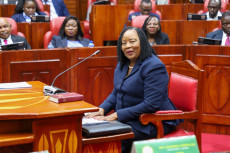Observed annually on November 19, International Men’s Day (IMD) shines a spotlight on the often-overlooked
issues affecting men and boys worldwide. Since its inception in 1999, the day has gained traction as a platform to celebrate the positive contributions of men to society, while addressing key challenges such as mental health, gender expectations, and societal stereotypes.
This year’s theme, “Leading by Example,” emphasizes the importance of mentorship and positive role models in fostering healthier communities. Advocates argue that conversations about men’s well-being remain underrepresented, despite startling statistics. For instance, men account for 75% of suicides globally, yet stigma around expressing vulnerability persists.
Proponents of IMD highlight that the day is not about competing with International Women’s Day but complementing it by promoting gender balance. “It’s not a zero-sum game,” says psychologist Dr. Ryan Jacobs. “Focusing on men’s issues benefits everyone by creating a more equitable and understanding society.”
Critics, however, question the necessity of such a day, often pointing to male privilege in many areas of life. Yet, supporters counter that acknowledging privileges does not negate real struggles, such as high workplace fatalities, lower life expectancy, and challenges in family courts.
Events marking the day include community workshops, mental health campaigns, and online discussions aimed at breaking down stereotypes of masculinity. Social media is abuzz with hashtags like #InternationalMensDay and #MensMentalHealth, bringing attention to under-discussed topics.
International Men’s Day serves as a reminder that progress toward equality involves addressing the unique challenges faced by all genders. By fostering open conversations, it aims to inspire solutions for a healthier, more inclusive world.

